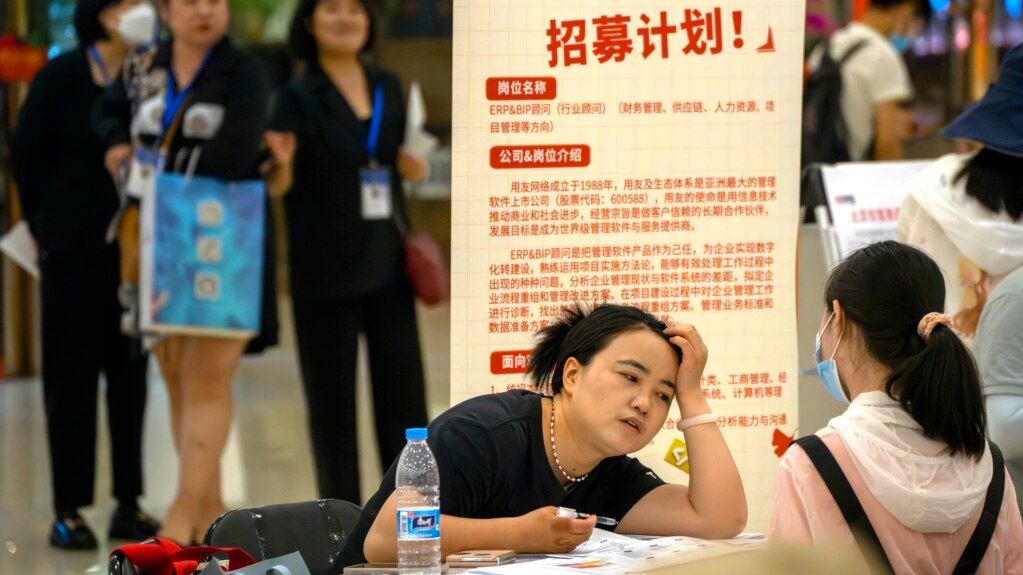An increasing number of young Chinese adults are moving back in with their parents because they cannot find jobs.
Estimates show that up to one in five young Chinese are currently out of work. The situation is linked to a depressed economy and weak job market as China tried to recover from its COVID-19 policies.
Traditionally, it is not unusual for adult Chinese children to remain living with their parents and other family members in the same home. But experts say the country’s current economic conditions are forcing many young adults to move back home because they are jobless and find it hard to support themselves.
One example is 29-year-old Marguerite Wang. She moved from her family’s home in northeastern China to the southern city of Shenzhen after graduating from college.
Wang spoke to reporters from The Associated Press about her experience. She said she had enjoyed her independence and life in the city. But when she lost her job with a gaming company in December, she decided to move back in with her parents.
Wang said she spent six months actively searching for a new job in Shenzhen. When her efforts proved unsuccessful, she decided it would be best to return home. Now she spends her days watching television and studying Japanese as she prepares to seek acceptance to a master’s degree program in Japan.
Wang told the AP she now mostly spends time with her parents, who give her spending money. For the moment, she is enjoying the slower way of life back home. And she is not sure what job she wants to seek next.
“I don’t want to be in the same kind of work situation as before,” Wang said. She added that while she was employed, she did not have much of a private life. “I actually didn’t know what I was so busy for,” she said.
Government data shows the unemployment rate in Chinese cities for people aged 16 to 24 reached a high of 21.3 percent in June. In July, the Chinese government stopped publishing age-specific data, the AP reported. This led some observers to think the politically sensitive numbers had climbed even higher.
China’s economy grew at a rate of 6.3 percent in the April through June period compared to the year before. In the previous year, China was still under heavy COVID-19 restrictions. Chinese exports have also fallen sharply as other major world economies suffer slowdowns.
The country’s overall unemployment rate in cities is officially 5.3 percent. But economic experts note that young people have been more affected than others.
Over the past two years, the Chinese government has placed new rules on industries such as technology and education. The moves led to major job reductions and closures in both industries, which traditionally hire young college graduates.
Other fields such as agriculture and building are lacking enough workers. But most college graduates want less physically demanding positions.
“There are job opportunities, but the job opportunities are low quality,” said Xiang Biao. He is head of the Max Planck Institute for Social Anthropology in Germany. “So, for the only child of a family, who received education, who grew up in a so-called time of abundance, it’s very difficult to embrace that kind of job.”
The current situation also shows the changing feelings of parents, said Mu Zheng, an assistant professor of sociology at the National University of Singapore. He told the AP that parents who would push their children to succeed financially and socially might now offer to provide support to their jobless children.
Mu noted that many parents had already reached a high level of financial security after many years of economic growth. And some of those parents are now agreeing to provide the needed support to their adult family members.
I’m Bryan Lynn.

